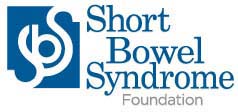Applying for Social Security Disability Benefits with Short Bowel Syndrome
Short bowel syndrome is a general term given to a range of medical problems that result in poor absorption of the nutrients that a person needs in order to sustain life. The poor absorption rates are usually due to the fact that the individual has had half or more of their small intestine removed.
The specific symptoms of short bowel syndrome can vary on a case-by-case basis but most common symptoms include diarrhea (which can lead to dehydration), cramping, bloating, heartburn, fatigue and weakness.
Needless to say, many of the people who suffer from short bowel syndrome are unable to maintain full-time work activities. Fortunately, for those who qualify, Social Security Disability benefits can help.
Social Security Disability Insurance (SSDI) and Short Bowel Syndrome
In order to qualify for Social Security Disability Insurance benefits due to a case of Short Bowel Syndrome, a patient must meet the medical criteria set forth in 5.07 (for adults) or 105.00 (for children) of the Social Security Administration’s “Blue Book”. This Blue Book is a list of medical guidelines that an individual must meet in order to qualify for Social Security Disability benefits.
In terms of Short Bowel Syndrome, the SSA’s Blue Book states that a patient’s impairment must result in dependence upon “daily parenteral nutrition via a central venous catheter for most nutritional requirements. Long-term complications of SBS and parenteral nutrition include central line infections (with or without septicemia), thrombosis, hepatotoxicity, gallstones, and loss of venous access sites. Intestinal transplantation is the only definitive treatment for individuals with SBS who remain chronically dependent on parenteral nutrition.”
Even if your condition does not meet the specific criteria set forth in Section 5.07 of the Blue Book, you may be able to qualify for Social Security Disability benefits if you can prove that your condition prevents you from performing any type of substantial gainful work activity.
In addition, in order to qualify for SSDI benefits, a patient must have earned enough work credits during the time that he or she was able to work. The amount of money you earned during this period will impact the amount of payment you receive each month from the SSA. If enough work credits have not been obtained, the applicant will not qualify for SSDI benefits but may qualify for SSI benefits.
Supplemental Security Income (SSI) and Short Bowel Syndrome
In order to qualify for SSI benefits from the Social Security Administration your medical condition must still meet the criteria set forth in the SSA’s Blue Book under section 5.07 (or 105.00 for children). However, when applying for SSI benefits approval is not contingent upon work credits. Instead, SSI is a needs-based program and your income and assets will be considered when determining whether or not you qualify for assistance. If you can prove your disability to the SSA and your assets and income are below the threshold set by the SSA, you will likely qualify for Social Security Disability benefits under the SSI program.
Working with a Social Security Disability Lawyer
In many cases, whether you are applying for SSDI or SSI benefits, it is wise to seek out the services of a qualified Social Security Disability attorney. These professionals can help you with your initial disability claim and if that claim is denied, they can help you through each stage of the appeal process. Statistics show that applicants who obtain the services of a qualified Social Security Disability lawyer are more likely to receive Social Security Disability benefits than those who do not.
Fortunately, working with a Social Security Disability attorney does not have to be cost-prohibitive. These attorneys work on a contingency basis, collecting 25-percent of the back pay that you are awarded by the SSA (up to a limit of $6,000). For example, if you are awarded $20,000 in back pay from the SSA, your lawyer will receive $5,000 of that $20,000 and you would receive the remaining $15,000. On the other hand, if you were awarded $40,000 your attorney would only receive $6,000 rather than the full 25-percent and you would receive $34,000.
Because Social Security Disability lawyers work on a contingency basis, no money has to come out of your own pocket in order to receive the legal services you need. The SSA pays your lawyer directly after your case has been approved.
Ram Meyyappan
Senior Editor
http://www.socialsecuritydisability.tv
